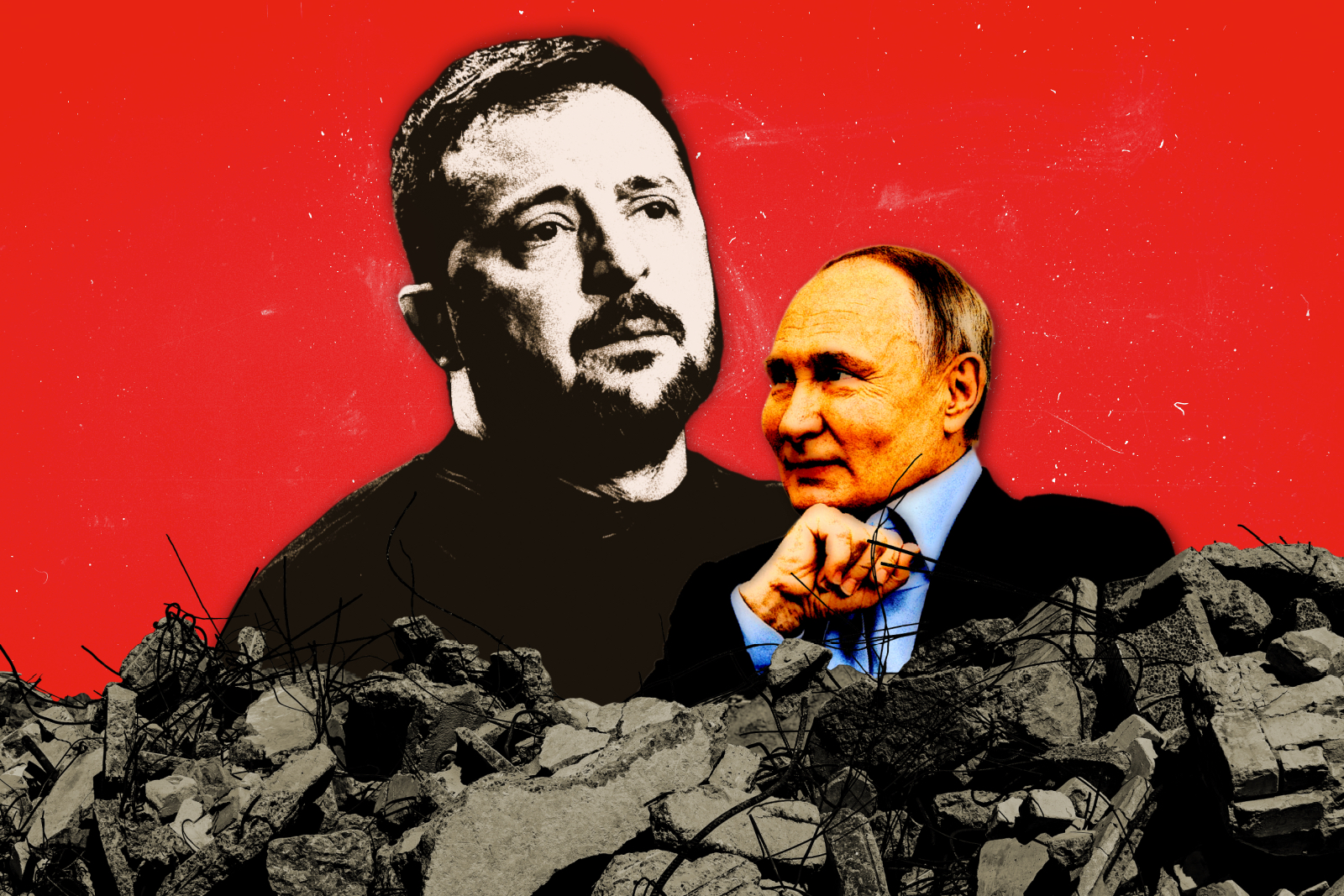
No End in Sight to Russia’s War on Ukraine
This week unfolded another grim chapter in Ukraine, as Russian missile strikes scarred the heart of Kyiv and the broad avenues of Kharkiv, claiming six lives and inflicting injuries upon dozens. Kharkiv bore the brunt with five dead and 42 wounded when the missiles laid siege to residential quarters.
This barrage was preceded by accusations from Moscow, which pointed the finger at Kyiv for a devastating missile strike on a Donetsk marketplace, resulting in at least 25 deaths and numerous injuries, per Russian accounts. The Ukrainian armed forces, however, vehemently denied any involvement in the attack.
In a separate incident, a fire erupted at a terminal run by Novatek, Russia’s second-largest natural gas producer, located on the Baltic Sea. This incident was accompanied by reports of drone sightings in the area. Additionally, several other Russian oil terminals, specifically in the Bryansk and Leningrad Oblasts, have recently been targeted by Ukraine.
A senior Pentagon official recently stated that Russia’s military is conducting probing attacks using missiles and drones against Ukraine. These attacks are seen as strategic attempts by Russia to identify vulnerabilities in the Ukrainian military defense system. This aggressive approach includes the use of ballistic missiles, cruise missiles, and drones. A significant aspect of this strategy appears to be to compel Ukraine to use up its valuable ammunition and air defenses in responding to these attacks.

Compounding these tensions is the state of U.S. financial support for Ukraine. Currently at a standstill in Congress, the provision of security assistance is a critical artery that has run dry. Without the necessary funds, the United States is hamstrung, unable to supply Ukraine with the urgent aid of ammunition and missiles needed to repel Russian forces. This fiscal paralysis introduces a perilous variable into Ukraine’s defense equation, potentially impairing its ability to maintain a robust defense against the Russian onslaught.
Russian President Vladimir Putin is under attack not only by Ukrainian drones but by his own citizens. A group of Russian women, whose husbands were among the 300,000 reservists mobilized by Putin for the war in 2022, are publicly demanding their return. These women, who connected via social media and formed “The Way Home” group, express a mix of opinions about the war but are united in their belief that their husbands have served enough and should be back with their families. In Russia, criticizing the war carries risks, and the women are cautious in their words due to laws against dissent.
They sought a sympathetic ear in Boris Nadezhdin, a councilor and presidential candidate known for his rare critiques of the government on national airwaves. The outcry of “The Way Home” has been met with a polarized reception—vilified by some as betraying the war effort, while others dismiss them as tools of Western machinations.
In a display of poignant dissent, the group has inaugurated a weekly ritual, adorning white headscarves and laying flowers at Moscow’s Tomb of the Unknown Soldier, a silent but potent protest. Their efforts encapsulate the convoluted interplay of loyalty, opposition, and the stark toll of warfare.
Putin has hinted that no further mobilization might be necessary, touting a substantial influx of voluntary combatants. Yet, given his record of conflicting pronouncements, this claim has been met with skepticism.
Concurrently, Ukrainian President Volodymyr Zelensky expressed serious concerns about former U.S. President Donald Trump’s claim that he could resolve the Russia-Ukraine war in one day if he were to return to the White House. In an interview with Britain’s Channel 4 News, Zelensky labeled Trump’s assertion as “very dangerous,” primarily because Trump has not detailed his plan for a post-war scenario.
While acknowledging that Trump’s statement might be mere political rhetoric, Zelensky emphasized the stress caused by the possibility of Trump making unilateral decisions that might not align with Ukraine’s interests. This concern follows Trump’s history of making bold foreign policy statements, exemplified by his comment to CNN’s Kaitlan Collins in May of last year, where he confidently stated his ability to settle the war in 24 hours.
At the World Economic Forum in Davos, Zelensky suggested that Putin would likely welcome a Trump victory in the upcoming November elections, seeing it as an opportunity to maintain his territorial gains in Ukraine and potentially claim victory.
Zelensky remains firm in his stance that any peace deal must include the withdrawal of all Russian forces from Ukrainian territories captured since 2014, including Crimea. However, Ukraine’s negotiating position has been weakened due to the unsuccessful summer counteroffensive.
Yet, the United States and NATO are adamant that Ukraine should not be pressured into any agreements with Russia that are not in its best interest. In a direct challenge, Zelensky has extended an invitation to Trump, urging him to actualize his claim of stopping the war in a day—a gesture that underscores the complexity and depth of international stakes in the ongoing Russia-Ukraine saga.
